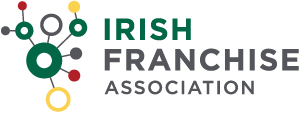Value Builder Factor 1 – Financial Evaluation
How to Value Your Business
Business valuation is a complex discipline, but there are some rules of thumb you can use to help you come up with an estimate of what your business is worth today.
Your business is likely your largest asset so it’s normal to want to know what it is worth. The problem is, business valuation is what I would call a “subjective science.”
The science part is what people go to school to learn: you can get an MBA or a degree in finance, or earn professional credentials as a business valuation professional and learn the theory behind business valuation.
The subjective part is that every buyer’s circumstances are different and therefore two buyers could see the same set of company financials and offer vastly different amounts to buy the business.
This article is intended to give you the basic science and math behind the most common business valuation techniques, but keep in mind that there will always be outliers that fall well outside of these frameworks. They are the strategic sales where a business is valued based on what it is worth in the acquirer’s hands. Strategic acquisitions, however, represent the minority of acquisitions, so use the three methods below to triangulate around a realistic value for your company:
Assets-based
The most basic way to value a business is to consider the value of its hard assets minus its debts. Imagine a landscaping company with trucks and gardening equipment. These hard assets have value, which can be calculated by estimating the resale value of your equipment.
This valuation method often renders the lowest value for your company because it assumes your company does not have any “Good Will.” In accountant speak, “Good Will” has nothing to do with how much people like your company; Good Will is defined as the difference between your company’s market value (what someone is willing to pay for it) and the value of your net assets (assets minus liabilities).
speak, “Good Will” has nothing to do with how much people like your company; Good Will is defined as the difference between your company’s market value (what someone is willing to pay for it) and the value of your net assets (assets minus liabilities).
Typically, companies have at least some Good Will, so in most cases you get a higher valuation by using one of the other two methods as described below.
Discounted Cash Flow
In this method, the acquirer is estimating what your future stream of cash flow is worth to them today. They start by trying to figure out how much profit you expect to make in the next few years. The more stable and predictable your cash flows, the more years of future cash they will consider.
Once the buyer has an estimate of how much profit you’re likely to make in the foreseeable future, and what your business will be worth when they want to sell it in the future, the buyer will apply a “discount rate” that takes into consideration the time value of money. The discount rate is determined by the acquirer’s cost of capital and how risky they perceive your business to be.
Rather than getting hung up on the math behind the discounted cash flow valuation technique, it’s better to understand the drivers of your value when using this method, which are: 1) how much profit your business is expected to make in the future and 2) how reliable those estimates are.
Note that business valuation techniques are either/or and not a combination. For example, if you are using Discounted Cash Flow, the hard assets of the company are assumed to be integral to the generation of the profit the acquirer is buying and therefore not included in the calculation of your company’s value.
A money-losing bed and breakfast sitting on a $2 million piece of land is going to be better off using the Asset-based valuation method, whereas a professional services firm that expects to earn $500,000 in profit next year, but has little in the way of hard assets, will garner a higher valuation using the Discounted Cash Flow method or the Comparables technique described below.
Comparables
Another common valuation technique is to look at the value of comparable companies that have sold recently or for whom their value is public. For example, accounting firms typically trade at one times gross recurring fees. Home and office security companies trade at about two times monitoring revenue, and most security company owners know the Comparables technique because they are often getting approached to sell by private equity firms rolling up small security firms. You can typically find out what companies in your industry are selling for by asking around at your annual industry conference.
The problem with using the Comparables methodology is that it often leads owners to make an apples-to-bananas comparison. For example, a small medical device manufacturer might think that, because GE is trading for 20 times last year’s earnings on the New York Stock Exchange , they too are worth 20 times last year’s profit. However, I can tell you, after analyzing more than 13,000 businesses that use The Value Builder System that a small medical device manufacturer is likely to trade closer to five times pre-tax profit.
, they too are worth 20 times last year’s profit. However, I can tell you, after analyzing more than 13,000 businesses that use The Value Builder System that a small medical device manufacturer is likely to trade closer to five times pre-tax profit.
Small companies are deeply discounted when compared to their Fortune 500 counterparts, so comparing your company with a Fortune 500 giant will typically lead to disappointment.
Finally, the worst part about selling your business is that you don’t get to decide which methodology the acquirer chooses. An acquirer will do the math on what your business is worth to them behind closed doors. They may decide your business is strategic, in which case back up the Brinks truck because you’re about to get handsomely rewarded for your company. But in most cases, an acquirer will use one of the three techniques described here to come up with an offer to buy your business.
Click here to get your score now.
The Value builder score is an easy way to instantly see how well you are performing against the 8 Factors that drive value in your business.
Click hereto attend our next FREE workshop!
Links to the 8 Factors Series:
- The valuation technique used by professional business buyers;
- The three attributes of a scalable business model;
- How to bulletproof your business from demanding employees, overbearing customers, and suppliers who hold you hostage;
- One simple technique for eliminating cash flow worries;
- The one kind of revenue that can triple the value of your business;
- The two essential elements of your marketing plan you need in order to avoid commoditisation and costly price wars;
- The one question you need to ask your customers to predict the likelihood that they will buy again in the future and refer you to others.
- Are you working IN or ON your business
Business Doctors is a business support network dedicated to helping small and medium sized businesses achieve their vision. We are experienced business people, passionate about sharing our skills and experiences. Our aim is to offer hands-on support, dedicated to getting you back on track to growing a profitable and more valuable business.
our skills and experiences. Our aim is to offer hands-on support, dedicated to getting you back on track to growing a profitable and more valuable business.
The Value builder score is an easy way to instantly see how well you are performing against the 8 Factors that drive value in your business. Business Doctors are certified Value Builders combining elements of the system created BY JOHN WARRILLOW with 10 years of hands on experience in helping businesses grow.








